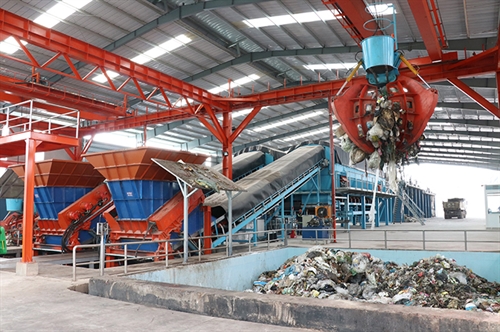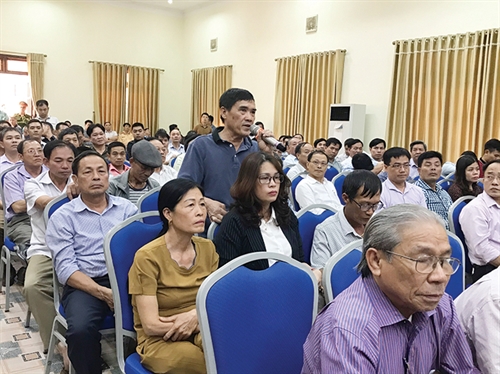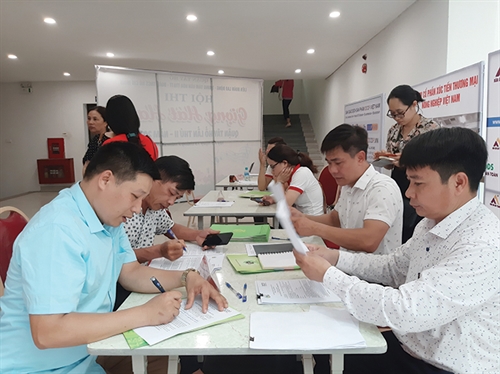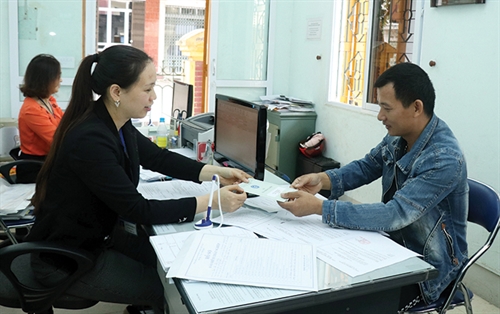Doan Thanh Huyen
International Trade Law Faculty, Hanoi Law University
Introduction
Offshore indirect transfer has become popular among multinational corporations to exploit loopholes and discrepancies in international and domestic tax rules which are not compatible among countries and have not kept pace with the current economy that is borderless and digitalized[1]. It is structured to artificially shift profits from the jurisdiction where such profits are generated to another jurisdiction which offers no tax or minimal tax[2].
Examples involve famous brands including Amazon, Apple, Facebook, Google, Microsoft, and Netflix[3]. According to statistics of the Organization for Economic Cooperation and Development (OECD), governments annually lose 4-10 percent of global corporate income tax revenues, equivalent to USD 100-240 billion[4].
International arbitrations have been initiated between countries and taxpayers that are giant multinational companies regarding tax imposed on offshore indirect transfer. For instance, in 2014, Vodafone International Holdings B.V (Vodafone B.V), a Dutch company and also a subsidiary of Vodafone U.K - a British telecommunications giant, filed an arbitration against India under the Netherlands-India Bilateral Investment Treaty (BIT), now terminated, challenging a tax imposed by India on Vodafone B.V’s offshore indirect acquisition of Hutchison International Telecom Ltd., a Cayman Islands-based company owning a controlling interest in the Indian telecommunications company Hutchinson Essar Ltd[5]. Three years later, in 2017, Vodafone U.K initiated arbitration against India under the UK-India BIT for the same issue[6].
Also in 2017, Vietnam was sued by ConocoPhillips (U.K) Limited, a UK subsidiary of ConocoPhillips (U.S), and Perenco Overseas Holding Limited, a UK subsidiary of Anglo-French oil and gas company Perenco[7]. The arbitration was initiated under the UK-Vietnam BIT for the reason that Vietnam imposed a tax on ConocoPhillips’s offshore indirect transfer of its participating interests in two petroleum blocks in Vietnam using several layers of its subsidiaries in the UK[8].
There are not a few numbers of respondent countries like Vietnam or India as, by 2019, at least 24 countries have experienced as the respondents in 40 tax-related ISDS cases, including Uganda, Laos, Algeria, Yemen, Ecuador, Venezuela, Peru, Bolivia, Mexico, and Argentina, among others[9].
This article analyzes problems faced by developing countries in the fight against tax avoidance strategies by multinational corporations and proposes some solutions.
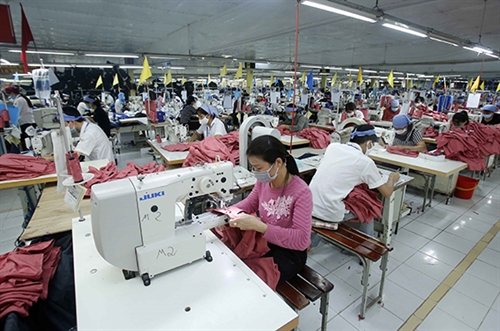 |
| Producing textile products at Tien Hung Textile Joint Stock Company, Hung Yen province__Photo: VNA |
Obstacles hindering developing countries to collect tax on offshore indirect transfer
Most developing countries have transitional legal systems that have not been updated to clear gaps and mismatches and very limited resources to combat tax avoidance strategies by giant multinational companies. Numerous obstacles prevent them from exercising their right to tax capital gains from offshore indirect transfer of assets which are located in their countries.
Indirect ownership of assets using intermediary vehicles is the heart of offshore indirect transfer structure that enables corporations to own assets in the source countries “indirectly”. An intermediary vehicle is normally incorporated in a tax heaven having an investment treaty in force with the host state so that the sale is tax-free and the investor can enjoy benefits of the underlying investment treaty, including the right to initiate an investor-state arbitration. Once a tax dispute arises, the investor can use benefits under the underlying investment treaty as a leverage to negotiate with the host state[10].
As mentioned above, offshore indirect transfer is a new issue that has not been updated or expressly provided in domestic laws of numerous developing countries. For example, in 2009, Petrotech International, a Delaware-based company, indirectly sold its interest in Petrotech Peruana, the third-largest oil and gas company in Peru, using its Houston-based subsidiary whose main asset was Petrotech Peruana[11]. The transfer value was approximately USD 900 million[12]. Since Peru’s income tax law at that time was silent on taxing offshore indirect transfer, Petrotech International successfully avoided paying a tax bill which is estimated at USD 482 million.[13]
Since multinational companies do not directly sell their assets, source countries may not even know a transfer is happening. In ConocoPhillips and Perenco v. Vietnam, ConocoPhillips sold its two UK-based subsidiaries which own participating interests in two oil blocks in Vietnam to Perenco Overseas Holding Limited which is also a UK company. The transfer happened entirely in the UK and subsequently, the two subsidiaries’ names were changed to include the brand “Perenco” in their new names. Vietnam did not know the transfer until, one year after the completion of the transfer, the two subsidiaries formally requested Vietnam to modify their licenses to reflect their name changes. Similarly, Congo also did not know and received nothing from the sale of 56 percent of controlling stake in the Tenke Fungurume Copper Mine, one of the biggest mining project in Congo, by Freeport McMoRan to China Molybdenum Inc. for USD 2.65 billion for the reason that Freeport did not directly sell its stake in the Copper Mine and the sale was done in a jurisdiction outside Congo[14].
Even if the source country knew the transfer, the question is how to determine the value of the transfer when the transfer was done by non-resident entities in another jurisdiction. In most cases, the source country must rely solely on the information about the gain value provided by the sellers. It is, however, hard for the tax authorities to obtain such information from the sellers or to verify it. For publicly held corporations, the tax authority may access available information of the company in question through a number of channels of public sources such as stock exchanges. In many cases, transfers happen discreetly without being discovered and remain untaxed. In ConocoPhillips and Perenco v. Vietnam, since the transfer was done entirely in the UK and the claimants did not declare tax, Vietnam faced difficulties in determining the transfer value and its related costs for tax calculation.
Furthermore, in many jurisdictions, capital gain tax on offshore indirect share transfer of a non-resident entity is triggered if the gain is derived mainly (more than 50 percent) from immovable assets located in the source country[15]. For example, Canada taxes any gain if more than 50 percent of such gain is derived from immovable assets located in this country[16]. South Africa sets a higher threshold of application that if 80 percent or more of the market value of equity shares, ownership or right to ownership or vested interest is attributable directly or indirectly to immovable property located in the country[17]. It is, however, hard to verify what percentage or value gain has to be derived from the source country assets since the buyers and sellers of indirect transfers never make correct tax declarations.
Vietnam taxes an offshore indirect transfer based on a change of ownership with regard to an asset/participating interest located in the country regardless of what percentage or value gain is derived from such asset/participating interest[18]. This tax provision does not prove useful and efficient in the cases where offshore indirect transfers involve many layers of subsidiaries and buyers are not required to register a change of ownership with the Vietnamese authorities.
For the reasons discussed above, the combat by developing countries against tax avoidance strategies using offshore indirect transfer is still a long and difficult war.
How is ISDS mechanism being abused for tax avoidance?
To reduce tax bills, multinational corporations have been abusing ISDS mechanism to turn tax disputes with source countries to the level of investor-state disputes. It threatens the tax justice and brings negative impacts on developing countries.
New-generation tax treaties normally accord a source country the right to tax income generated from it[19]. Thus, if a company initiates a tax dispute under a tax treaty against a source country challenging a tax imposed on its capital gain derived from an offshore indirect transfer of its assets located in such country, it may not have a strong position. Furthermore, even though investment treaties generally have a carve-out and/or exception regarding taxation[20], it does not prevent an investor’s right to initiate a treaty-based arbitration against a tax measure. Subsequently, in most cases regarding tax disputes with source countries, investors do not choose to initiate a legal proceeding alleging that the host state breaches the underlying tax treaty but seek a cure through benefits accorded by investment treaties.
Moreover, opinions regarding a source country’s right to tax gains generated from offshore indirect transfer are controversial and unclear among scholars, lawyers, and arbitrators, especially in the absence of an express provision in the domestic law providing for a tax on gains from offshore indirect transfer. Investment Arbitration Reporter, in its news on January 22, 2020, reported that ConocoPhillips and Perenco had settled the case against Vietnam and the indirect sale of participating interests in two oil blocks in Vietnam was finally taxed after seven tiring years[21]. However, as Vietnam remains silent about all of its ISDS cases so far, no one, except Vietnam and the claimants, knows if ConocoPhillips did pay a fair share of tax or reduce its tax bill by putting arbitration pressure on Vietnam. In September this year, the tribunal in Vodafone B.V v. India ruled in favor of Vodafone B.V. It is reported that this tax dispute is valued at USD 5.5 billion. Although the award of the case has never been disclosed, it is believed that the award finds the Indian Government in violation of the fair and equitable treatment standard as required by the India-Netherlands BIT and India is obliged to pay partial compensation for the legal costs incurred by Vodafone B.V and to refund the tax which has been collected so far[22].
Different authorities in the same country also have controversial opinions regarding a tax measure imposed on offshore indirect transfer. For example, in 2010, the Bombay High Court held that the indirect sale between Vodafone B.V and Hutchison Telecommunications International Limited, the two non-resident companies, was taxable in India as they found sufficient nexus between the sale value and the underlying assets located in India[23]. In contrast, the Supreme Court of India, in its decision of 2012, overturned the Bombay High Court’s decision and ruled in favor of Vodafone B.V[24]. Right after this decision, the Indian Government proposed amending the Income Tax Act with retroactive effect from April 1962 to tax all the like transactions whether they occur before or after the amendment[25]. Because of this controversy, investment arbitrations related to tax on offshore indirect transfer are unpredictable among countries.
Most developing countries are put under the pressure on protecting a good image of their investment environment as investment arbitrations may affect foreign direct investment (FDI) flow. In addition, developing countries have difficulties inside their systems, such as limited budgets and low capacity of legal officers, hindering them from pursuing lengthy and costly arbitrations. Taking advantage of it, multinational companies attack tax using investor-state arbitration. In many cases, ISDS is not used as a regime for investor protection against bad behaviors of the host state but serves as a leverage for multinational companies to bargain with states for better deals[26] i.e., reducing tax bills or shirking tax liability. Fair and equitable treatment, expropriation, non-impairment of management, maintenance, use, enjoyment and disposal of investment and most-favored-nation treatment are investment treaty obligations that are usually asserted to initiate a tax-related arbitration against developing countries.
As ISDS is a one-way mechanism where developing countries always act as respondents, domestic tax disputes could easily rise to the level of investment treaty-based disputes. This may cause regulatory chill since the host state is reluctant to change its tax laws or to take tax measures on offshore indirect transfer. Since developing countries do not usually have a strong financial budget, losses of tax revenues resulted from tax avoidance strategies by multinational companies also affect the interests of local communities as they would have been entitled to better health care, education and social welfare if tax avoidance had never happened.
The way forward
Recognizing the negative impacts of tax avoidance strategies using offshore indirect transfer and difficulties that developing countries are facing to protect their tax bases, numerous solutions should be implemented together to address these problems.
Determining a right forum to hear tax disputes
Taxation is a sovereign state power that is recognized under international law. A state’s tax policy is “a core sovereign power that should not be questioned lightly”[27]. In any event, the imposition and collection of tax on indirect offshore transfer are not only considered a legitimate exercise of that power, but also affirmatively encouraged and recognized by the international community as a proper tool for countering tax avoidance strategies of multinational companies. A tax dispute should be treated as a dispute between a taxpayer and a tax authority but not a treaty-based dispute between an investor and a state, except the case of expropriation which is hidden by a tax measure.
It is obvious that tax treaties and investment treaties are distinguished and created for totally different purposes. As mentioned above, many investment treaties generally have a carve-out or exclusion of their application regarding taxation. Even if there is a lack of an express tax carve-out, it is correct to say that taxation is beyond the scope of investment treaties. This is clear when we look at the history and practice of investment treaty negotiation. For instance, in Vietnam’s practice in investment treaty negotiation: nothing about taxation is discussed in the negotiation table, Vietnam’s negotiation delegation is composed of representatives from the Ministries in charge of investment promotion and protection (i.e., Ministry of Planning and Investment), industry and trade (i.e., Ministry of Industry and Trade), investment dispute settlement (i.e., Ministry of Justice) and foreign affairs (i.e., Ministry of Foreign Affairs). As Vietnam’s understanding is that taxation is a sovereign power of a country and there is no forum for the negotiation of taxation, a tax officer representing the tax authority never appears in an investment treaty negotiation. Subsequently, a tax dispute should not be integrated into treaty-based investment arbitration. A domestic tax court is the right forum for it.
Building a domestic law in conjunction with negotiation of new investment treaties and renegotiation of existing ones
Countries should develop and enforce legal regimes against tax avoidance with detailed and workable provisions. As noted by the United Nations (UN), a number of countries, including Chile, China, the Dominican Republic, India, Indonesia, Mozambique, Panama, and Peru, have taken steps to address tax avoidance through indirect transfer by adopting policies of taxing foreigners on the sale of interests in foreign entities that hold, directly or indirectly, the shares of resident companies[28]. They are good examples for other countries to take necessary steps to tax offshore indirect transfer.
As old-generation investment treaties contain general and ambiguous provisions, they are easy to be abused to initiate ISDS cases against host countries. Addressing these issues, some governments have acted at a fundamental level by terminating their investment treaties and negotiating new ones or renegotiating existing treaties. European Union (EU) Member States, for example, in 2019, circulated a draft Agreement for termination of intra-EU BITs[29]. Several countries have planned to renegotiate their existing BITs. The Netherlands, in 2019, published a new model BIT for non-EU BITs negotiation and obtained authorization from the European Commission to renegotiate its existing BITs with Argentina, Burkina Faso, Ecuador, Tanzania, Turkey, the United Arab Emirates, and others.[30]
In negotiating new investment treaties, countries tend to provide clear and detailed provisions to narrow down the scope and the threshold of liability under investment treaties to avoid being abused[31]. It is believed that actions of States in renegotiation of existing investment treaties and negotiation of new ones in conjunction with the ISDS Reform discussed by the UN and countries would address tax avoidance abusing ISDS and seek reform solutions for ISDS to be a fair mechanism that promotes sustainable development of developing countries.
Joint projects and cooperation to combat tax avoidance
As tax avoidance is harmful to everyone[32], international institutions also recognize the legitimacy of State measures to combat tax avoidance strategies of multinational corporations. As requested by the Development Working Group of G20, the International Monetary Fund (IMF), OECD, the UN and World Bank Group (WBG) had produced “toolkits” to assist developing countries in addressing base erosion and profit shifting (BEPS) due to “concerns” that investors were avoiding capital gain tax by selling assets/interests indirectly[33]. The Platform for Collaboration on Tax was launched in April 2016 by the IMF, OECD, UN and WBG to help developing countries protect tax bases and intensify cooperation between countries and organizations, including but not limited to design and implementation of international tax standards, information sharing and capacity building support to developing countries[34].
In parallel with the production of the toolkits, the UN also updated its Handbook on “Protecting the Tax Base of Developing Countries”[35] for “designing and enforcing a legal regime for taxing non-residents on capital gains realized from domestic sources” [36].
BEPS project launched by the IMF, OECD, UN and WBG and guidance by the UN are effective tools for nations all over the world to well cooperate in the war against tax avoidance strategies using offshore indirect transfer. Besides, a strict revenue disclosure requirement and effective information exchange between countries would help prevent losses of tax revenues in source countries and prevent BEPS.-
